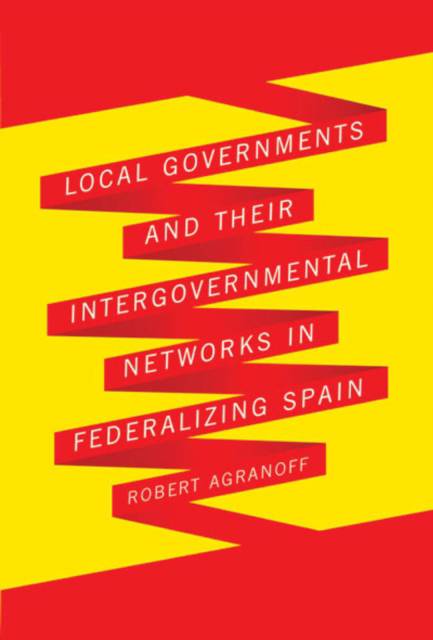
Bedankt voor het vertrouwen het afgelopen jaar! Om jou te bedanken bieden we GRATIS verzending (in België) aan op alles gedurende de hele maand januari.
- Afhalen na 1 uur in een winkel met voorraad
- In januari gratis thuislevering in België
- Ruim aanbod met 7 miljoen producten
Bedankt voor het vertrouwen het afgelopen jaar! Om jou te bedanken bieden we GRATIS verzending (in België) aan op alles gedurende de hele maand januari.
- Afhalen na 1 uur in een winkel met voorraad
- In januari gratis thuislevering in België
- Ruim aanbod met 7 miljoen producten
Zoeken
Local Governments and Their Intergovernmental Networks in Federalizing Spain
Robert Agranoff
Hardcover | Engels
€ 177,45
+ 354 punten
Uitvoering
Omschrijving
Federal development in post-Franco Spain reaches far beyond familiar Basque/Catalan nationalistic struggles and includes the creation of an increasing number of intergovernmental networks by local governments, particularly municipalities, as they engage regional, central, and other local entities to operate programs and services in basic and emergent policy areas. By examining the intergovernmental networks in an increasingly federalized Spain, Robert Agranoff shows that local governments, although they occupy a strong position in legal and constitutional terms, are in practice subordinate to both central and regional governments and therefore lack adequate power and resources to deal with both the responsibilities assigned to them and those they'd like to assume. As a result, local governments are forced into a series of intergovernmental arrangements and transactions with governmental and nongovernmental organizations.
The Spanish situation provides important insights into intergovernmental relations in all decentralized countries, particularly in revealing how autonomy can create a host of complex intergovernmental linkages, partnerships, and transactions that require complex networks at the elected official and administrative level.
The Spanish situation provides important insights into intergovernmental relations in all decentralized countries, particularly in revealing how autonomy can create a host of complex intergovernmental linkages, partnerships, and transactions that require complex networks at the elected official and administrative level.
Specificaties
Betrokkenen
- Auteur(s):
- Uitgeverij:
Inhoud
- Aantal bladzijden:
- 318
- Taal:
- Engels
Eigenschappen
- Productcode (EAN):
- 9780773536166
- Verschijningsdatum:
- 1/01/2010
- Uitvoering:
- Hardcover
- Formaat:
- Genaaid
- Afmetingen:
- 150 mm x 231 mm
- Gewicht:
- 616 g

Alleen bij Standaard Boekhandel
+ 354 punten op je klantenkaart van Standaard Boekhandel
Beoordelingen
We publiceren alleen reviews die voldoen aan de voorwaarden voor reviews. Bekijk onze voorwaarden voor reviews.









